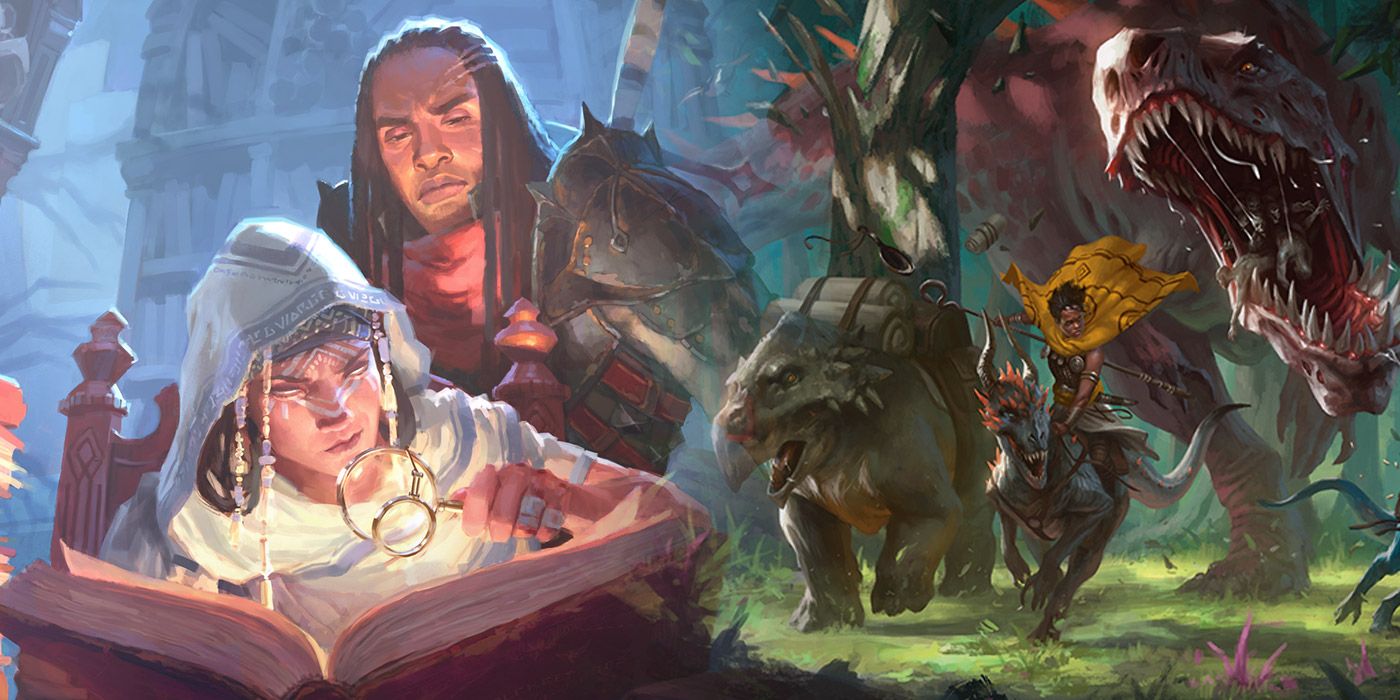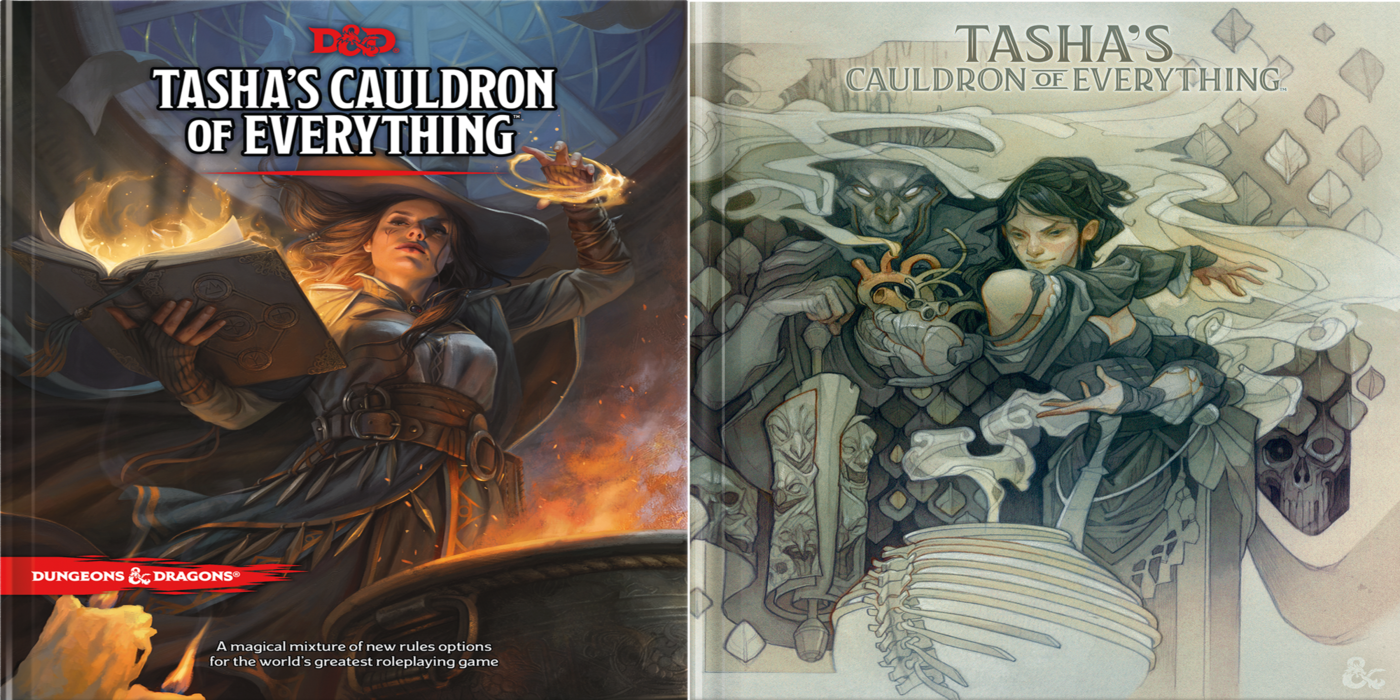
Tasha's Cauldron of Everything added a slew of new subclasses to fifth edition Dungeons and Dragons when it came out late last year, giving players even more ways to customize their characters. However, fans were quick to point out that many of these subclasses were significantly more powerful than their counterparts in the Player's Handbook, sparking discussions about power creep.
The new sourcebook also gave powerful new abilities to the fifth edition ranger, which was widely considered to be the weakest iteration of the class ever seen in Dungeons and Dragons. Tasha's addressed those weaknesses by reworking the Beast Master subclass, finally allowing rangers to have a suitably powerful animal companion. Now that the Beast Master has been buffed, a few other subclasses could use a similar treatment.
RELATED: DnD: 10 Things That Players Should Know (So The DM Doesn't Need To)
The Wild Magic sorcerer is a very popular subclass, allowing players to roll on the Wild Magic Surge table to create a random magical effect. Running the gamut from incredibly powerful to hilariously mundane, these effects are as likely to zap a room full of enemies with lighting as they are to make the sorcerer's hair fall out. The problem is that the only two features that allow this have the text "the DM can have you roll." Depending on the Dungeon Master, Wild Magic sorcerers can go entire sessions without getting any benefit from the feature that makes them unique.
In contrast, a Wild Magic subclass was introduced for the barbarian in Tasha's Cauldron of Everything, and allows the player to choose when they make this roll. There are far fewer effects, and their power level is more consistent. As much fun as the original Wild Magic table can be, limiting the options and narrowing the variation between effects might allow Wild Magic sorcerers to take more control.
Often compared to Aang from Avatar: The Last Airbender, the Way of the Four Elements subclass is known for being one of the least popular character options in fifth edition Dungeons and Dragons. While the subclass has a few unique abilities, most of its features simply allow monks to cast spells that other classes get at much lower levels. In practice, this means that players who choose this subclass rarely get to use these features, because the spells they have access to are far too weak.
This subclass could be greatly improved by making each elemental effect unique, rather than simply duplicating other spells. Way of the Four Elements monks should be able to spend a ki point to change the type of damage they deal with their unarmed strikes. This would bring them in line with the Way of the Astral Self monks introduced in Tasha's Cauldron of Everything, who can make their unarmed strikes deal force damage.

The Inquisitive subclass for the rogue is an attempt to bring a Sherlock Holmes archetype into the world of Dungeons and Dragons. Two of the subclass's features allow rogues to notice things more quickly than normal, but that only delivers half of the fantasy of being a hyper-intelligent detective. Sherlock Holmes isn't an enduring archetype simply because he notices things, but because his mind makes connections that the average person wouldn't. Trying to capture that intelligence mechanically is a bit of a Catch-22, because feeding answers to a player would defeat the fantasy of them discovering those connections on their own.
A more successful version of this subclass would allow the rogue player to extrapolate additional details based on seemingly mundane clues. One option would be to let the player roll on a table to learn more about a particular person or object. The DM would still need to prepare extensively to ensure that they don't give too much away, but this would be a step in the right direction. Hopefully, the upcoming Candlekeep Mysteries adventure will include ways to make this class more useful.
RELATED: Dungeons and Dragons: Tasha's 5e Magic Item Showcase - Wizard Spellbooks
The Path of the Berserker subclass allows the barbarian to be played as a relentless force of nature. The subclass's main ability, Frenzy, gives the barbarian a level of exhaustion every time it's used, but only one level of exhaustion can be removed each day. This discourages players from using this ability more than once per day, and they don't get access to another subclass feature until sixth level. Intimidating Presence can frighten enemy creatures, but its effectiveness is tied to the character's charisma...which most barbarian players in Dungeons and Dragons treat as a dump stat.
These abilities almost deliver on the fantasy they promise, but are a little too punishing to be worth using. The class could be improved by giving players a chance to avoid exhaustion by rolling a constitution saving throw. Similarly, Intimidating Presence could be made more useful if the DC to avoid being frightened was tied to the barbarian's constitution rather than charisma.
The College of Swords seems out of place as a bard subclass, especially because it plays with the same archetype as the Swashbuckler rogue. Both are meant to be flamboyant duelists that use their charm and talent to distract their opponents, but oddly enough, the rogue subclass is more successful. Worst of all, the College of Swords features require the bard to use their Bardic Inspiration dice on personal buffs instead of aiding the rest of the party. Considering that the bard is one of the best support classes in fifth edition Dungeons and Dragons, this feels out of step with the class's identity.
This DnD subclass would be more appealing if its abilities could empower the other members of the party. The bard is meant to be inspiring, and could easily fit the fantasy of a duelist who's so good at fighting that they empower their allies. Another possibility would be to give the subclass maneuvers similar to those available to Battle Master fighters. Knocking opponents prone or disarming them would be a great way for College of Swords bards to create opportunities for their fellow party members.
Dungeons and Dragons: Candlekeep Mysteries will be available digitally and physically on March 16, 2021.
MORE: Dungeons and Dragons: Ideas for Creating an Evil Campaign in 5e to Fit the Dhampir

